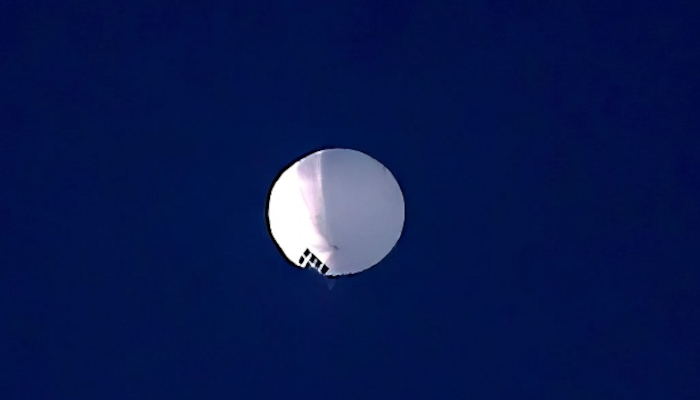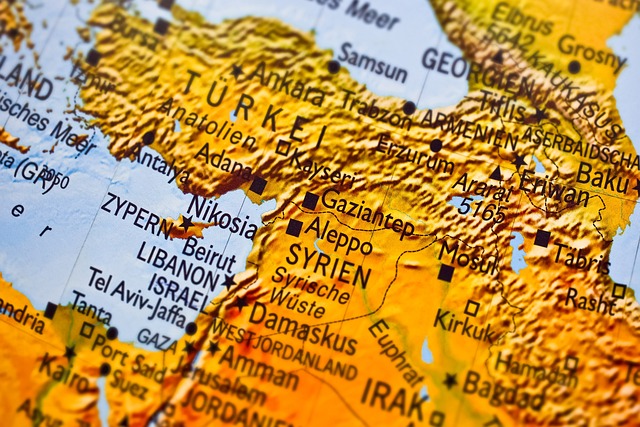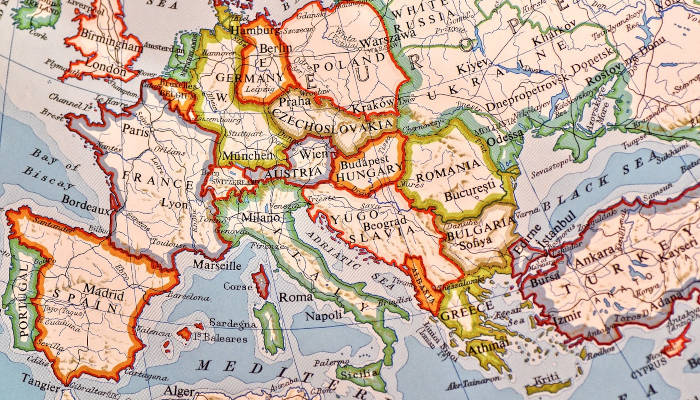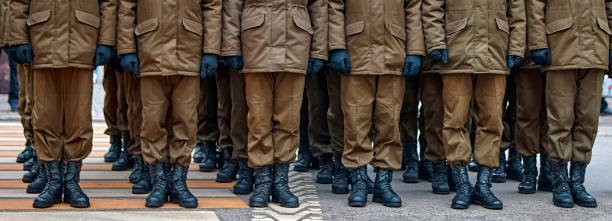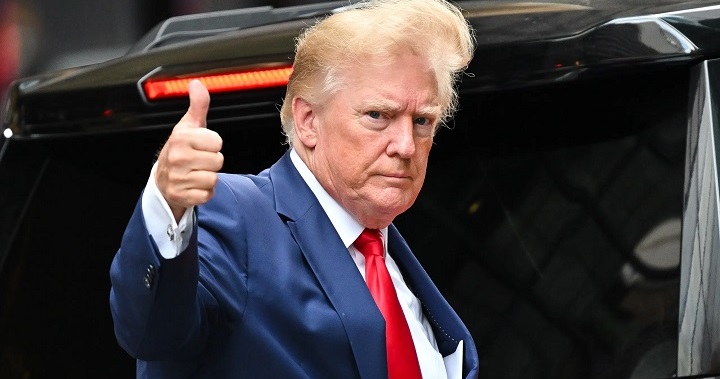
There is a strong China angle in the whole Donald Trump affair[1], the growing controversy engulfing America about the ex-president’s behavior during the January 6, 2021 tumult, and his insistence on rejecting the results of the election that brought Joseph Biden to the presidency.
The Chinese political system is consistently vertical, unitary, and rational. It has one answer for every question and they end to the top leader, the ultimate guarantor of the country’s well-being.
Democracies and their division of powers are very different; they are both vertical and horizontal. They need to find a balance between contrasting pushes and pulls every day. Once found, the balance is ultimately informal, based on the state’s ethics, something that can’t be put on paper, and if it were to be placed on paper, it would lose efficacy. Therefore, unwritten rules are even more important than written ones.
The ethics can be dented and partially corrupt; the system is geared for that and can live with it as it has shock absorbers for pushes against ethics.
The situation gets even more confusing if you cast in another essential power of modern democracy – the free press, the unspoken fourth power. Who controls the journalists and checks their behavior or information?
Actually, nobody does, and nobody can; otherwise, it would contradict the primary tenet of the profession and its power, its total independence. But there is measurement here – the respect of other journalists and writers. It is one more unclear element, difficult if not impossible to gauge for vertical powers, which asks: how powerful is a mighty journalist, more or less than a president? And no clear answer can be provided.
Then, suppose these ethics, adjusting verticals and horizontals, are absent, denied, or ignored. In that case, there is no “bottom line” dixian, as the Chinese would put it; if so, you are in a wufa wutian (no law, no heaven), as Mao loved to describe himself, what can the system do?
The question is particularly cogent for China. The country has traditionally mixed feelings for wufa wutian. Average persons certainly can’t behave like this. Still, ambitious ones, people trying to be the emperor or who are emperors, must start by thinking that they make a law of their own and do not follow established conventions. They have to make the law to establish their power; they do not and cannot live by it or under its thumb.
Conversely, in modern democracies, nobody is above the law. In principle, if someone or anybody tries to defy the law, the law must take care of him. In reality, state ethics knows that social fabric is delicate, and thus to preserve it, judiciary force must be used with extreme caution against people representing a large part of the society.
Then this may give us a glimpse of the Chinese perceptions of Trump in China. Is it possible that Trump bargained for some kind of Russian or foreign help in return for US military secrets? It’s the unspoken allegation hovering over the recent FBI seizures at Trump’s residence. It is so damning in America that it can’t even be murmured, although some think of it.
In China this allegation maybe wouldn’t be such a big deal. Mao after all in his climb to power talked to the Russians and the Americans, and cut deals with the Japanese (officially at war with China) in order to survive and beat his main enemy, the fellow Chinese of the KMT. It isn’t spelled in black and white in China’s history books, but it is widely suggested in the scheming, plotting, and betrayals of the classic novel The Three Kingdoms, a must-read for any ambitious Chinese youngster. Here loyalty is not to law and ethics but only to sworn brothers.
What will America do with Trump? He is not losing too much popularity; thus bluntly using the law against him could tear apart the precious US social fabric. Ignoring him would break the law and thus create even worse damage to the delicate balance of democracy and turn America into some kind of “banana republic”[2] as David Graham put it. The difficulty of solving the puzzle may make Chinese think their straightforward system is better.
Still here there is one precedent one can look at: Italy.
Italy’s laboratory
Italy seems to be some kind of global laboratory for weird political developments. A few times it has started the first instances of new political chemistry, which were later replicated and worsened in other countries. In the 1920s, Italy invented fascism when a former socialist put his people’s skills at the service of the capitalists. A decade later Germany, the superpower of the time, adopted it and made it more efficient. In the 1990s, Italy invented Berlusconi, a billionaire who went into politics to save his ambitions; and some 30 years later America replicated it and “improved” it with Trump.
Both Berlusconi and Trump sensed a dissatisfaction with the national elites who did not understand or channel the growing malaise of common people. In Italy, these people felt they had been privileged, middle class, small entrepreneurs. They feared their privileges, pensions, and social security but also immunity to shirk taxes were about to be taken away.
In America they were poor whites, who felt their privilege of being white was being taken away. But immigrants who did well in America also didn’t want their achievements challenged by other minorities who felt entitled and didn’t work as hard.
One thing clearly in common is aversion to taxes. That is, loathing to pay for a sprawling state that would use tax money to pay for their “class enemies” (as Marxists would put it) be they Southern Italian loafers or entitled social workers helping those disrupted by drugs. Then the social pact underpinning the tax system is being eroded.
Yet, Mussolini was no Hitler, and Berlusconi no Trump. Unlike Trump, Berlusconi never staged or supported, incited, or was complacent with an attempted violent coup or attack on the parliament. He won and lost elections; he never challenged the results. There was no attack on the congress during Berlusconi’s time.
There was an element that is similar to Trump’s predicament. He also broke some informal rules upholding democracy – he attacked and tried to undermine the judiciary. Italian judges tried and in fact succeeded in putting him on trial. He was found guilty on some charges and for that he accused the prosecutors and the judges of having a political agenda; they wanted to get rid of him. The charges he was accused of had to do with his life as a businessman, not a politician.
Trump went beyond Berlusconi. He was at the very least sympathetic to the January 6 protests, didn’t acknowledge his electoral defeat, and now claims the judiciary action against him is politically motivated.
Therefore, the most critical elements against Trump are not about his life as a businessman but his political decisions about crucial aspects of democratic life. The attack on Capitol Hill and the challenge of the elections directly undermine the foundations of democracy. The suspicion he tried to draw on foreign support for his cause breaks any shred of commonality in America.
They go way beyond whatever private malfeasance he or his associates had with their businesses. This can be understood and forgiven in China because this is how a new emperor establishes himself. Because the emperor (or its modern incarnation) is above the law, he is the pinnacle and the pivot on which the law and the state hinge.
But if Trump doesn’t recognize that he is subject to the law and not above it, it is an attack on the democratic system and an attempt to transform America into something else. It may be justifiable, because trumpists argue that democracy doesn’t work anymore in America, but that is what it is.
In ancient Greece, the word democratikòs (the ruler of the demos, the low class, then the rabble-rouser) was synonymous with tyrannòs.[3] That is, the ancient Greeks recognized early the paradox that democracy can be driven to the extreme and then turned to become tyranny. A tyrant then was worse than the oligarchic system of Sparta, with two kings taking turns and ruling every other day.
To correct this danger, modern democracies set up a division of powers, with a reliable independent judiciary power to safeguard the status quo and to avoid a slide into tyranny. Mussolini and Hitler came to power not through coups but the ballots, and then staged coups.
To put anybody above the law is a slide to democratikòs.
The rise of democratikòs shows a social phenomenon — people disillusioned and feeling betrayed by the democratic system. This is bad and should be addressed. But removing the aspiring tyrant is a must.
What will happen then? And what might China think in all of this? If America wants China to become democratic, China will ask what kind of democracy it should follow. If U.S. democracy doesn’t work too well this is a problem.
A popular TV series, Better Call Saul, is maybe the story of a clever common man, Jim McGill, who tries to do well and have his slice of the American pie when he is being squeezed by stiff, insensitive, moralistic establishment types and total criminals with no morals.
Insensitive laws are evil; having no laws is even worse, is a constant thread of the story.
Jim seems to have lost his soul and changes his name to Saul Goodman. But then he repents and finds himself back at the very end. The law, with all its faults, is better than soulless crime. Jim is a good man in his soul, and love saves him.
It’s a simple, modern Frank Capra story of the kind that sustained America during the very difficult 1930s. Will Jim McGill help America now? and the souls of the good men in America be an inspiration also to Chinese leaders? Here is the future.
[1] See also Joseph Bosco https://thehill.com/opinion/white-house/3603171-trump-has-tarnished-his-administrations-legacy-and-betrayed-the-gop/
[2] See https://www.theatlantic.com/ideas/archive/2022/08/trumps-mar-lago-raid-doesnt-make-banana-republic/671082/
[3] See Luciano Canfora Democracy in Europe: A History of an Ideology, 2008.





